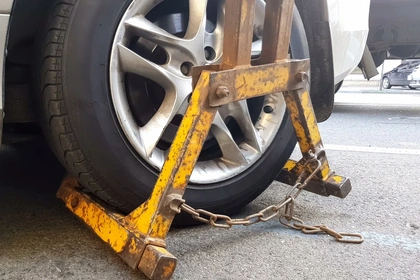What is bankruptcy?
Bankruptcy is a form of insolvency that may be an option available to you if you’ve found yourself in serious financial difficulties and unable to repay your debts. Nearly all your unsecured debts should be written off and your creditors won’t be able to take any legal action against you. However, bankruptcy isn’t something that should be taken lightly, as it can have serious implications for your financial future and your ability to get approved for credit. If you own your home, it could be put at risk.
If you decide to apply for bankruptcy, you’ll need to visit the government’s website and pay £680 in court fees. Your assets will typically also be seized and sold on to cover your debts. Bankruptcy usually lasts for at least a year, and you should receive a letter confirming that your bankruptcy has been discharged once it’s come to an end.
Can I get car finance while bankrupt?
Unfortunately, it’s unlikely that you’ll be able to get car finance during your bankruptcy period. Lenders will usually refuse to offer loans to bankrupt people and you must disclose your status to prospective lenders if you wish to borrow any amount over £500.
You may also find that taking out a new car finance loan would be in breach of the restrictions your official receiver has put in place, which may put you at risk of receiving a court order that suspends your bankruptcy discharge.
However, it’s not all bad news. Once you’ve been officially discharged from bankruptcy, you can take steps to improve your credit score and then make a car finance application when you’re ready.
What options are available for car finance after bankruptcy?
If you’re looking for discharged bankrupt car finance, there are several different types of car loan you could consider:
Hire Purchase (HP)
Hire purchase (HP) loans are one of the most common types of car finance. Typically, you’ll be asked to put down a deposit upfront, followed by fixed monthly payments for a period of between two and five years.
At the end of the loan term, you may need to pay a small ‘Option to Purchase’ admin fee and you can then take ownership of the car – it’ll be all yours!
Personal Contract Purchase (PCP)
Personal contract purchase (PCP) car finance can usually offer lower repayments than HP, as you don’t have to borrow the full value of the car. Instead, you need only borrow the difference between the cost of the car and its predicted future value when your contract finishes.
When you reach the end of your agreement, you can choose to hand the car back to the lender or take ownership of it by paying the one-off balloon payment. Or, if you have enough equity, you could use it as a deposit towards a new car.
Personal Loan
Personal loans work differently from HP and PCP agreements, as they aren’t secured to the vehicle. This means that you’ll take ownership of the car as soon as you’ve used the loan to pay the seller. However, as the loan is unsecured, it does pose more risk to the lender and so may not be an option for you if you have a bad credit score or have been bankrupt in the past.
What happens to your car when you’re declared bankrupt?
Each bankruptcy has different terms and conditions depending on your individual circumstances. However, in most cases, if you own a car or currently have a vehicle with outstanding finance, your bankruptcy receiver will decide whether you need it or not. You’ll usually only be allowed to keep your current car if it’s deemed essential, if you need it to get to work and have no access to public transport or due to a disability. It’s worth keeping in mind that, in the eyes of your official receiver, essential isn’t the same as convenient.
If you live in England or Wales and your car is worth over £1,500, you may be asked to sell it or swap it for a cheaper vehicle that’s worth up to £1,000. With car finance, if you come to the end of a hire purchase agreement while an official receiver is handling your case, ownership of the car will typically automatically pass to them. If you’re still making car finance repayments, the lender may have a clause in your agreement that allows them to terminate early and repossess the vehicle if you become bankrupt.
How does bankruptcy affect my credit score?
Bankruptcy will be marked on your credit report and will negatively affect your credit score. Once discharged, the bankruptcy will remain on your credit report for six years but if you’re never discharged from bankruptcy, it can stay on your report indefinitely. Your bankrupt status will also be recorded on the Individual Insolvency Register until around 15 months after bankruptcy.
Don’t be surprised if lenders ask you about your bankruptcy in the future. You may also wish to wait at least 12 months after your bankruptcy period ends before making a new credit application to increase your chances of finding a loan approval.
How can I improve my credit score after bankruptcy?
The good news is that credit scores aren’t fixed, and you can take steps to improve them over time, even if you’ve been bankrupt. It’s not an exact science and there’s no set score that will guarantee you’ll be approved for car finance, but following the guidelines below may help you rebuild credit after bankruptcy.
- Register on the electoral roll – head online to register for free every time you move house.
- Pay your bills on time – consider setting up a direct debit after payday to reduce the chance of paying late.
- Check for mistakes on your credit report – regularly looking at your credit report can help you spot unusual activity or incorrect details.
- Don’t use all the available credit – using a smaller percentage of your total credit and not maxing out your credit cards could boost your score.
- Don’t apply to several lenders at once – several hard credit searches in a short time could harm your score.
- Check your financial links – joint credit cards or mortgages could mean someone else’s credit history is affecting your creditworthiness.
Get Car Finance up to £100,000
- Check your eligibility without impacting your credit score
- No deposit needed
- Rates from 8.9%* APR
'Representative Example: Borrow £12,000 over 5 years with a £0 deposit. Representative 20.5% APR fixed rate. Monthly payment: £309.93. Option to purchase fee £10 payable. Total cost of credit: £6,605.80. Total amount repayable: £18,605.80.
We are a credit broker, not a lender. We partner with CarFinance 247 Limited, a credit broker (not a lender) who works with a wide panel of lenders.
Disclaimer: We make every effort to ensure content is correct when published. Information on this website doesn't constitute financial advice, and we aren't responsible for the content of any external sites.






